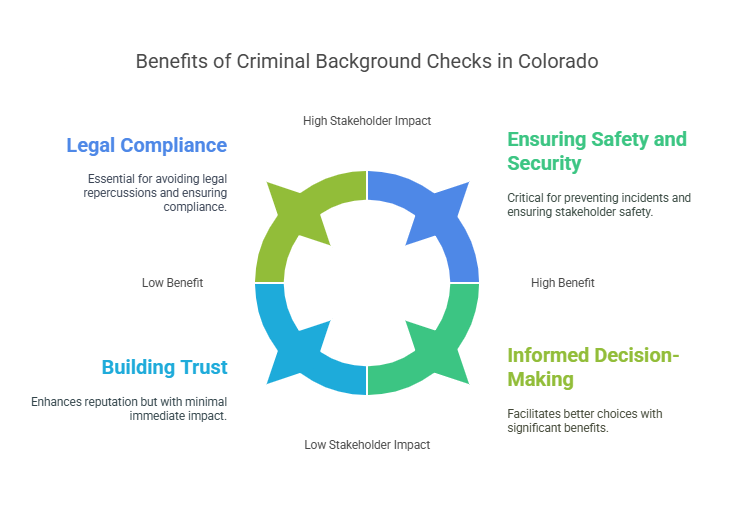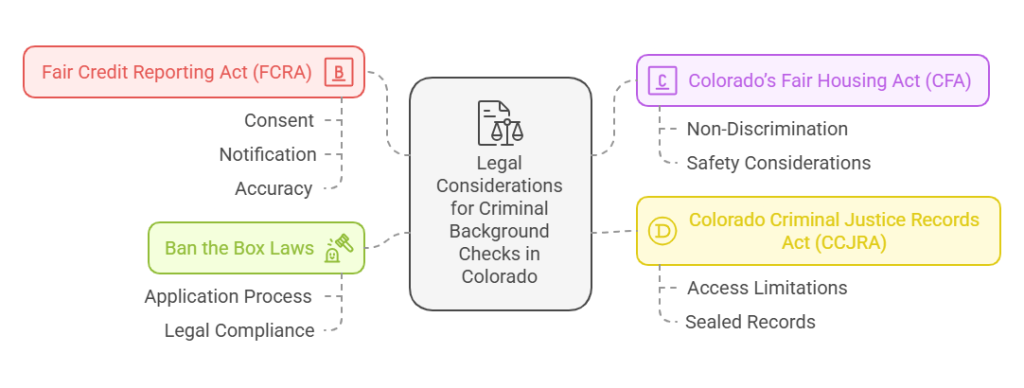Criminal Background Check Colorado: Guide for Employers and Landlords
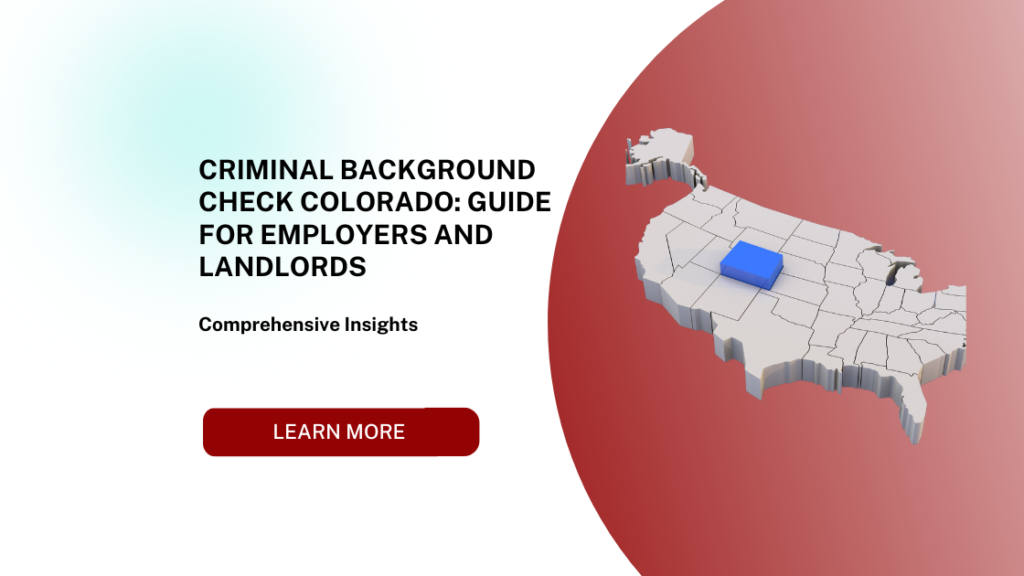
Introduction and Overview of Criminal Background Checks in Colorado
What is a Criminal Background Check and Why is It Important in Colorado?
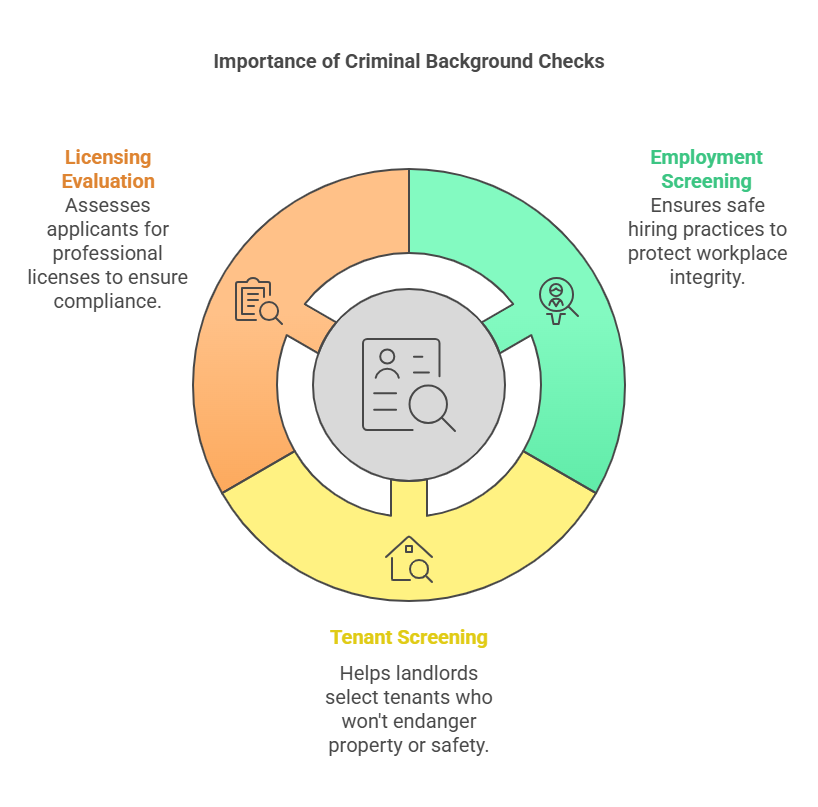
A criminal background check is a process used to verify an individual’s criminal history. This typically includes checking national, state, or local databases to identify any criminal convictions, pending charges, or other legal issues. In Colorado, criminal background checks are a crucial tool for ensuring safety, compliance, and informed decision-making in a variety of contexts, including employment, housing, and legal matters.
For employers, conducting criminal background checks is an essential part of the hiring process. It helps ensure that individuals with a history of serious criminal activity are not hired for positions that may put others at risk. For landlords, criminal background checks are used to ensure tenants do not have a history of behavior that could endanger others or damage property. Other entities, such as licensing agencies, may also use criminal background checks to evaluate applicants for professional licenses.
Types of Criminal Background Checks Available in Colorado
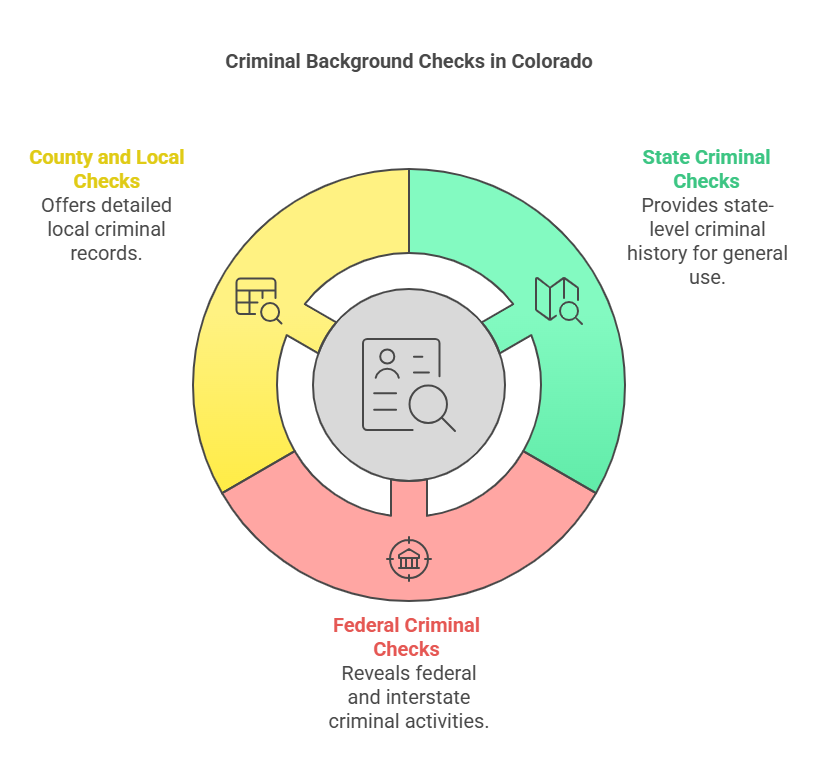
In Colorado, there are two main types of criminal background checks: state-level and federal-level checks. Both serve different purposes and vary in scope, depending on the needs of the requester.
- State Criminal Background Check (Colorado Bureau of Investigation – CBI): This is the most commonly requested background check in Colorado. It provides access to an individual’s criminal history within the state of Colorado, as stored by the Colorado Bureau of Investigation (CBI). The CBI’s criminal database includes information on state-level offenses, such as felonies, misdemeanors, and arrests.
- Federal Criminal Background Check: A federal background check is required for more specific cases, such as for certain federal job positions or for individuals with criminal activity that occurred across state lines. These checks access the National Crime Information Center (NCIC) and the FBI’s criminal database. They can reveal a broader range of crimes, including federal offenses that may not appear in a state-level check.
- County and Local Background Checks: In some cases, individuals or entities may choose to access local county or municipal records for more specific criminal history information. These checks are generally done for specific areas within Colorado and may provide more localized data.
Key Steps Involved in Obtaining a Criminal Background Check in Colorado
The process of obtaining a criminal background check in Colorado can be straightforward but may require some preparation. Below are the key steps involved:
| Step | Description |
|---|---|
| 1. Identify the Type of Check | Determine whether you need a state-level check, federal-level check, or both, depending on the purpose. |
| 2. Gather Required Documents | Prepare necessary identification documents (e.g., a government-issued ID or fingerprint card). |
| 3. Submit a Request | Submit your request to the Colorado Bureau of Investigation (CBI), the FBI, or a third-party service. |
| 4. Pay Fees | Most background checks have associated fees, which may vary depending on the type of check requested. |
| 5. Wait for Results | Depending on the type of check, results can take anywhere from a few days to several weeks. |
In Colorado, individuals can request a criminal background check directly from the Colorado Bureau of Investigation (CBI), or they can choose to use third-party services that provide faster, more comprehensive screening solutions. Third-party services may offer additional features, such as nationwide checks and real-time results.
Who Can Request a Criminal Background Check in Colorado?
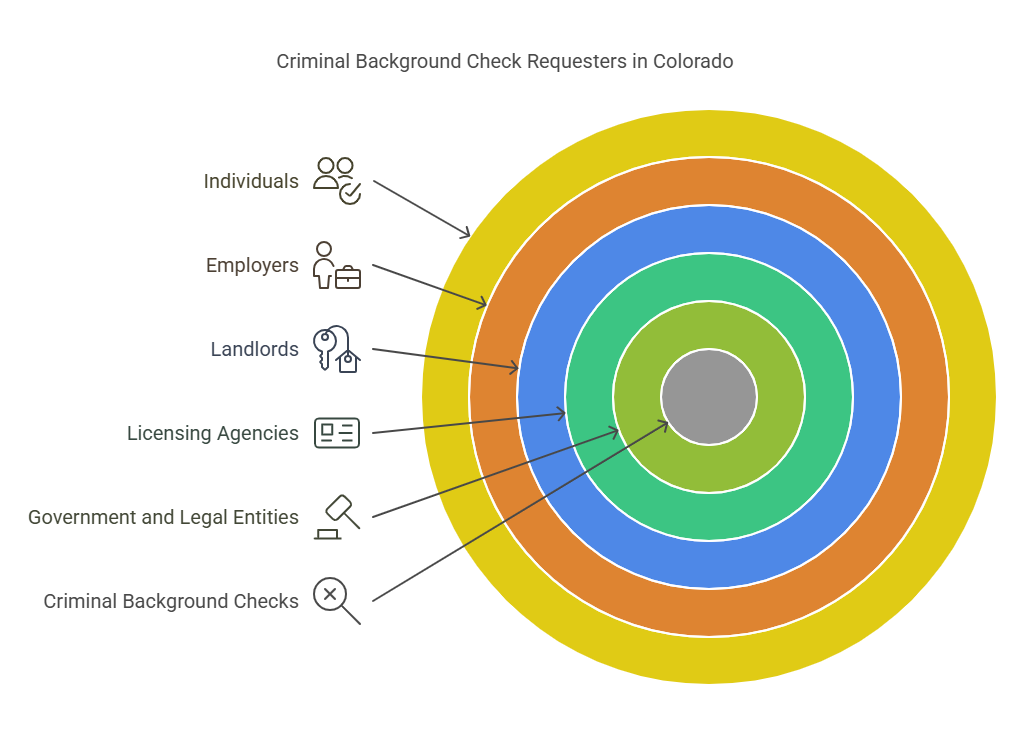
In Colorado, criminal background checks can be requested by several types of entities, each for different purposes. The primary parties who may request these checks include:
- Employers: Employers often request background checks to ensure that candidates do not have a criminal history that would disqualify them from certain roles. For example, positions that involve working with vulnerable populations, such as children or the elderly, may require a more thorough screening.
- Landlords: Many landlords and property managers conduct criminal background checks to screen potential tenants. This helps ensure the safety and security of the property and the community. Landlords may use a criminal background check to identify prior offenses like drug crimes or violent behavior.
- Licensing Agencies: Professional licensing boards may use criminal background checks to evaluate applicants for licenses. For example, those applying for medical, legal, or financial licenses may be subject to a criminal background check to ensure they meet the legal and ethical requirements for the profession.
- Individuals: Individuals can also request their own criminal background check to verify their records, particularly if they are applying for a job, housing, or a license. This can help applicants spot any errors or outdated information before it becomes an issue.
- Government and Legal Entities: Law enforcement agencies or the courts may request background checks in the context of criminal investigations or legal proceedings.

